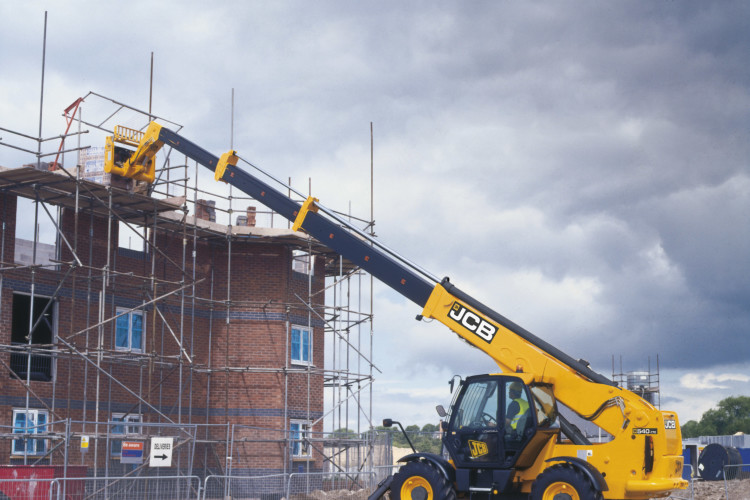The system fully complying to industry standard EN15000 on all its Loadall, Teletruk & Telemaster models (variable reach trucks) sold in Europe and countries requiring CE marking.

Load Moment Control
Adaptive Load Control is designed to ensure JCB telescopic reach machines comply with the new European regulation EN 15000. This legislation has been introduced to reduce the likelihood of forward overturning of a variable reach truck performing stationary loading or placing operations on consolidated, stable and level ground, by the use of an automated LLMC.
Adaptive Load Control is fitted to a number of machine types and size within the JCB range, and consequently does vary in application by model. Loadalls with side mounted engines and the Telemaster range are fitted with a patented proportional cut out for the hydraulic functions to reduce the impact of inertia when the load is stopped and to keep cycle speed as high as possible. Other models have a two stage hydraulic cut out version fitted which first reduces the hydraulic function speed and then stops the load movement completely when the LLMI reaches its limit. In both cases the operator always has the ability to retract or raise the load to return to a safe operating condition.
Dependent upon the machine type, JCB Adaptive Load Control uses a combination of proportional or two-stage hydraulic cut-outs for the boom function, along with a number of other sensors monitored by an onboard control unit which then adjusts the hydraulic flow to control the boom out and boom down functions accordingly.
By using a proportional ‘soft stop’ system on the higher lift machines, Adaptive Load Control overcomes the problem caused by a sudden stop creating additional inertia from a combination of weight and high reach, that can increase the risk of machine forward overturn. The proportional flow reduction used for the high reach machines also maximises speed of operation so that the operator’s ability to use the machine’s full operating envelope is not compromised. – The lift performance indicated on the lift chart can be achieved while complying with EN15000 using the Adaptive Load Control system.
Complete Handler Versatility
The JCB models affected by this legislation are, however, often used as loaders for bulk re-handling. As EN15000 is designed to protect operators of stationary variable reach machines while lifting loads, and cannot be activated or deactivated by the operator, Adaptive Load Control is automatically deactivated when the machine is on the move or has the boom fully retracted and re-activated when it stops travelling and has the boom extended. This ensures that the versatility of JCB machines, is not compromised when being used for tasks other than handling loads with forks in static lifts.
Tim Burnhope, JCB Group Managing Director for Product Development and Commercial Operations, said: “Adaptive Load Control allows JCB to maintain its market leading position over other manufacturers, as our telescopic machines will continue to operate up to their maximum productivity capabilities while still fully complying with this latest legislation.
“With Adaptive Load Control, JCB has yet again developed an innovative solution that not only meets legislation, but that does so without impacting on lift performance or productivity when the machine is operating as a loader.
“The system increases operator comfort, as boom movement does not stop suddenly, while the loading function is maintained automatically once the machine is moving or the boom is retracted.”
Got a story? Email news@theconstructionindex.co.uk



